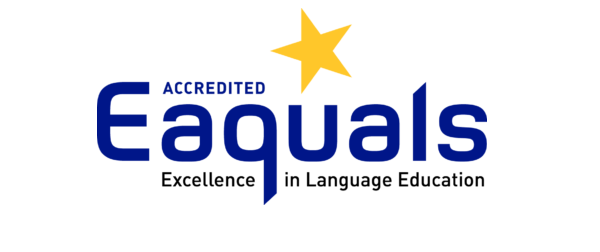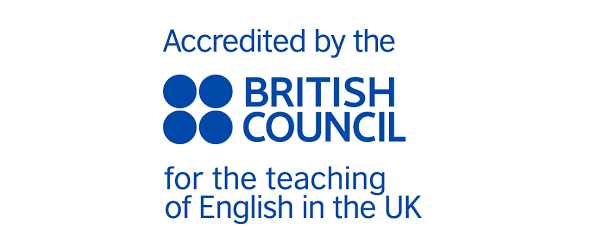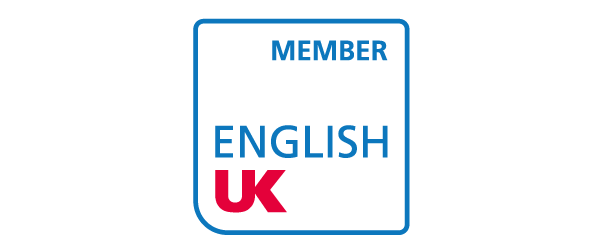FAQs
TEFL Courses (CELTA/DELTA)
CELTA is the most widely recognised and highly respected pre-service training course for intending teachers of English as a foreign language. Validated and overseen by Cambridge English Language Assessment (a division of Cambridge University) for over 30 years, and recognised worldwide, CELTA is the initial teaching qualification that employers know and trust.
NILE’s CELTA tutors are highly experienced teachers and trainers, including CELTA and DELTA Assessors, ELT authors and tutors on many of NILE’s other courses. All tutors have been approved and standardised by Cambridge English Language Assessment.
NILE currently offers the following alternative deliveries of the CELTA course: face to face, online full- and part-time, mixed mode and extended mixed mode. The latter is face to face full time in Norwich for two weeks, followed by online part-time study for the second half of the course on 10 consecutive Saturdays, whereas the online part-time course offers sessions three times a week over ten weeks.
CELTA courses are extremely intensive. For example, a face-to-face course requires full-time attendance five days a week for four weeks. On most days the timetable runs from 09.15 to 17.00. In addition, trainees are required to produce four short written assignments, as well as preparing for teaching practice.
There are normally 12 trainees on a course. They come from a variety of educational and professional backgrounds, both from within the UK and from other parts of the world, and range from recent graduates to people of retirement age.
Trainees normally have to teach every other course day. At times, there may be further opportunities to practise teaching.
The students can come from a range of different countries. On Norwich courses, they are mostly resident in the city for relatively short periods, though some may have settled in Norwich. On online courses, students can be at locations worldwide. From a student's perspective, teaching practice provides them with access to free English language tuition.
Each trainee observes six hours of teaching, in addition to observing fellow trainees during teaching practice and having opportunities to see further classes on video. Observation is organised so that trainees have the opportunity initially to see classes at the level that they are teaching. Although trainees are not required to teach beginners or very advanced students, they will have the chance to observe those levels when they are available. Observation is task-based and trainees are directed to focus on particular aspects of teaching / learning in each observed lesson. Notes written during / after observation also provide the Course Tutor with an indication of what is being learned from the experience.
There are four assessed written assignments of a practical nature. In addition, trainees are required to hand in their observation notes and lesson plans and to do a variety of short written tasks. There is very little time for extensive reading. Reading references are given throughout the course, but these tend to be articles or chapters from books rather than entire books. Reading on the CELTA is also highly practical – teachers' handbooks rather than theoretical writing. Trainees are, however, strongly recommended to do as much reading before the course as possible.
Supervision is in teaching practice groups of six. Each trainee also has at least one individual tutorial meeting with their supervisor half way through the course.
Most trainees who pass the CELTA do go on to find employment after the course, but there is no guarantee of work.
Pass A and Pass B grades are awarded to a minority of trainees, and provide an indication to potential employers that newly qualified teachers are likely to need less support from a Director of Studies or Senior Teacher. But a Pass, combined with a positive Centre report, is still sufficient to get employment in a reputable school; subsequently the teacher’s performance in that first job and the references they obtain will be a more decisive factor when they apply for a further post.
As CELTA is based on a system of continuous assessment throughout the four weeks, there is no opportunity for re-assessment other than taking another course.
Yes, year-round with host families in and around the city, and in the summer (late June to early September) in residential accommodation at the University of East Anglia.
DELTA is the most widely recognised and highly respected in-service training course for experienced teachers of English as a foreign language. Validated and overseen by Cambridge English Language Assessment (a division of Cambridge University) for over 30 years, DELTA is the advanced teaching qualification that employers know and trust.
DELTA was divided into three free-standing modules precisely because candidates were finding it increasingly difficult to follow a ten- or twelve-week face-to-face course or a six-month part-time course. There are still a few centres offering an all-in-one DELTA course, but this is not an option offered by NILE.
All three NILE online DELTA modules have course input which is completely online.
However, for DELTA Module 1, you need to go to an exam centre to take the exam.
DELTA Module 2 is administered online by NILE and supervised online by your local tutor, who also visits your lessons or college (in person or online) to observe and assess your teaching on four occasions, the first of which is purely for diagnostic purposes. Module 2 can currently be taken 100% online if you are teaching online, but if you are teaching face to face, then your teaching practice assessments will be in the classroom, using your current classes.
DELTA Module 3 is assessed through an extended piece of writing, which is submitted online.
However, for DELTA Module 1, you need to go to an exam centre to take the exam.
DELTA Module 2 is administered online by NILE and supervised online by your local tutor, who also visits your lessons or college (in person or online) to observe and assess your teaching on four occasions, the first of which is purely for diagnostic purposes. Module 2 can currently be taken 100% online if you are teaching online, but if you are teaching face to face, then your teaching practice assessments will be in the classroom, using your current classes.
DELTA Module 3 is assessed through an extended piece of writing, which is submitted online.
Module 1 requires you to take a face-to-face exam.
Module 2 may include face-to-face observation of your teaching.
Module 3 is completely online.
Yes. There are asynchronous forums for you to discuss the course with your tutors and other course participants.
We strongly recommend doing Module 1 first in order to gain a grounding in the key areas. Alternatively, you can start from Module 3 if you feel it is more relevant to your current teaching context and needs. We do not normally accept candidates for Module 2 unless they have done one of the other modules first because the demands of Module 2 are high, particularly in terms of writing, analysis, and use of terminology. Module 1 or 3 help candidates get better prepared and meet these expectations.
For Module 1 you do not need to be teaching a class.
For Module 2 you do need a class (minimum of 5 students) for your teaching to be assessed, although it does not have to be the same class for each of the four assessed lessons. Ideally the class(es) should be your own, though it could be a ‘borrowed’ class for the assessments.
For Module 3 you need a class (minimum 3 students), or access to a class, for one or two sessions in order to conduct needs analysis and diagnostic assessment as the basis for a course proposal. You do not have to teach the class [Note: The class size requirement does not apply if you opt for Teaching One to One as your specialism].
For Module 2 you do need a class (minimum of 5 students) for your teaching to be assessed, although it does not have to be the same class for each of the four assessed lessons. Ideally the class(es) should be your own, though it could be a ‘borrowed’ class for the assessments.
For Module 3 you need a class (minimum 3 students), or access to a class, for one or two sessions in order to conduct needs analysis and diagnostic assessment as the basis for a course proposal. You do not have to teach the class [Note: The class size requirement does not apply if you opt for Teaching One to One as your specialism].
Unfortunately, NILE cannot provide students/classes for you to teach.
No - there are no limits to the time that might elapse between modules.
15-20 hours per week for Modules 1 and 3, and at least the same for Module 2 for the 16-week option, but less for the 9-month option.
This depends very much on your personal career objectives. The DELTA is a much more practical teaching qualification than most MA courses, but if you are thinking of doing the DELTA first and then going on to do an MA, it is worth noting that a Pass in all three DELTA modules can be accepted by the University of Chichester as Recognition of Prior Learning (RPL), counting for 60 credits and giving you exemption from the core module of NILE’s MA. NILE has created a video that tells you more about choosing between the MA & the DELTA.
For Module 1 you can re-take the exam without re-taking the course.
For Module 2, your internal course work needs to pass before you take your External. If you fail your internal course work, you may be able to re-submit parts of it, at an additional cost. Once you have passed your internal work, you do your External assignment and your work is submitted to Cambridge. If you are ‘referred’ by Cambridge, it means that you did not pass your External assignment and you are able to re-take this within a year as a stand alone assignment. If, however, you do not pass it within a year, you will be awarded a Fail grade for Module 2, meaning that you need to re-do the whole course.
For Module 3 if your final assignment does not meet the pass requirements you will be ‘referred’ by Cambridge. This allows you a 12 month period in which to edit your assignment and resubmit it. If you then fail you would need to write a completely new assignment focussing on a different specialism. You do not have to take the full course again but you may wish to pay for some 1:1 tutor support.
For Module 2, your internal course work needs to pass before you take your External. If you fail your internal course work, you may be able to re-submit parts of it, at an additional cost. Once you have passed your internal work, you do your External assignment and your work is submitted to Cambridge. If you are ‘referred’ by Cambridge, it means that you did not pass your External assignment and you are able to re-take this within a year as a stand alone assignment. If, however, you do not pass it within a year, you will be awarded a Fail grade for Module 2, meaning that you need to re-do the whole course.
For Module 3 if your final assignment does not meet the pass requirements you will be ‘referred’ by Cambridge. This allows you a 12 month period in which to edit your assignment and resubmit it. If you then fail you would need to write a completely new assignment focussing on a different specialism. You do not have to take the full course again but you may wish to pay for some 1:1 tutor support.
For Module 1, on payment of a fee, you can request a clerical check of the mark awarded, or to have the papers completely re-marked. (However, it is not possible to obtain any detailed commentary on exam performance) For Modules 2 and 3, on payment of a fee, you can request an individual assessor’s / examiner’s report to get detailed information on your weak areas before you re-take the module.
If your application is being partly or fully funded by your institution, please contact us for institutional offers. Most overseas institutions are also exempt from VAT.
DELTA Modules can be paid per module or as a package: candidates who sign up to take all three DELTA Modules with NILE pay a total of £3929, saving you up to £200. The package price is not available in conjunction with any other discount.
The DELTA package can be paid in full prior to starting the first module, or according to the payment plan set out on our payment page. The payment plan must be agreed prior to starting the first module.
The DELTA package can be paid in full prior to starting the first module, or according to the payment plan set out on our payment page. The payment plan must be agreed prior to starting the first module.
Module 1 includes ‘tutor tasks’, which are submitted online and to which the Module Leader responds with corrections and feedback. In addition, there is also a revision package at the end of the course in the form of practice exam papers, and candidates receive detailed feedback on their performance. Module 3 includes 35 tasks, mostly designed for reflection, with answers and / or commentary provided online, but candidates may submit any of these tasks for feedback. In addition, candidates are invited to submit drafts of each of the five sections of the extended assignment for feedback, as well as one final draft of the entire assignment.
The Module 1 course lasts for 12 weeks and consists of nine units delivered weekly, with a full practice exam in Week 10 and the last two weeks of the course leading up to the exam dedicated to revision, including feedback on the practice exam. The course material covers the entire DELTA syllabus, as well as providing a focus in each unit on the standard task-types used in the exam. Units are released on a weekly basis, and each unit includes a number of ‘Tutor Tasks’ to be uploaded onto the moodle platform for correction and feedback.
At NILE if that is convenient; otherwise at your closest Cambridge exam centre. When you approach another centre to arrange to take the exam, please make it clear that NILE is enrolling you for the exam and you are asking them simply to host the exam for you. Once you have made such an arrangement, please inform NILE (delta.admin@nile-elt.com) so that we can liaise with the centre. Please also be aware that other centres may charge an administration fee.
Both courses cover the same content and work towards the same end result. The 16-week course is better suited to those people who can dedicate at least 15 hours per week to the course to allow for reflection and research alongside their normal work. The 36-week course is designed so that assignments can be spaced out more, and may be more appropriate for those teachers working full time or who like more time to reflect on their learning.
The diagnostic lesson and the first three assessed lessons are supervised and assessed by the Local DELTA Tutor (LDT), supported by a NILE online tutor. The final assessed lesson is seen by an External Assessor (someone who is or has been a DELTA tutor at another centre).
We recommend you try to find a local DELTA tutor yourself; ideally it would be someone who is already a DELTA tutor who works with or near you and who you would be happy to work with. Alternatively, you can suggest someone who is an experienced teacher trainer who could follow NILE’s online DELTA tutor training programme to train up to be your tutor. Cambridge requirements for local DELTA tutors are available on request. NILE will help to find you a local tutor if you have difficulty.
The local DELTA tutor’s fees are included in your course fees.
NILE takes responsibility for organising the External Assessment, doing everything possible to ensure that you get an Assessor for the date you want.
All local costs and payment to the External Assessor are covered by NILE and Cambridge. Any international transport costs need to be covered by the candidate. NILE will liaise with you to keep these costs as low as possible.
The Module 3 course consists of five units, corresponding to the five sections of the extended assignment described in the Cambridge DELTA Handbook.
Unlike the Module 1 course, all the course material is available from the outset. At the end of Units 1-4, a draft of the relevant section can be uploaded for tutor feedback, and a final draft of the whole assignment should be uploaded for tutor feedback at the end of Unit 5.
Unlike the Module 1 course, all the course material is available from the outset. At the end of Units 1-4, a draft of the relevant section can be uploaded for tutor feedback, and a final draft of the whole assignment should be uploaded for tutor feedback at the end of Unit 5.
Cambridge offers a choice of 16 different specialisms for Module 3 (see the Cambridge DELTA Handbook for the complete list of specialisms). In most cases, the choice will be clearly linked to a current teaching context, but in cases where specialisms may overlap or where the choice is not an obvious one, NILE will advise on the most appropriate option.
Please note that NILE does not offer the ELT Management alternative mode for Module 3.
Please note that NILE does not offer the ELT Management alternative mode for Module 3.
No – most of the work required for the Module 3 extended assignment depends on generic principles and procedures (relating to needs analysis, diagnostic assessment, course design, assessment of learning outcomes and course evaluation) which are applicable to any course regardless of the specialism involved. The NILE course for Module 3 includes supplementary units per specialism outlining key considerations for the particular area of teaching chosen.



